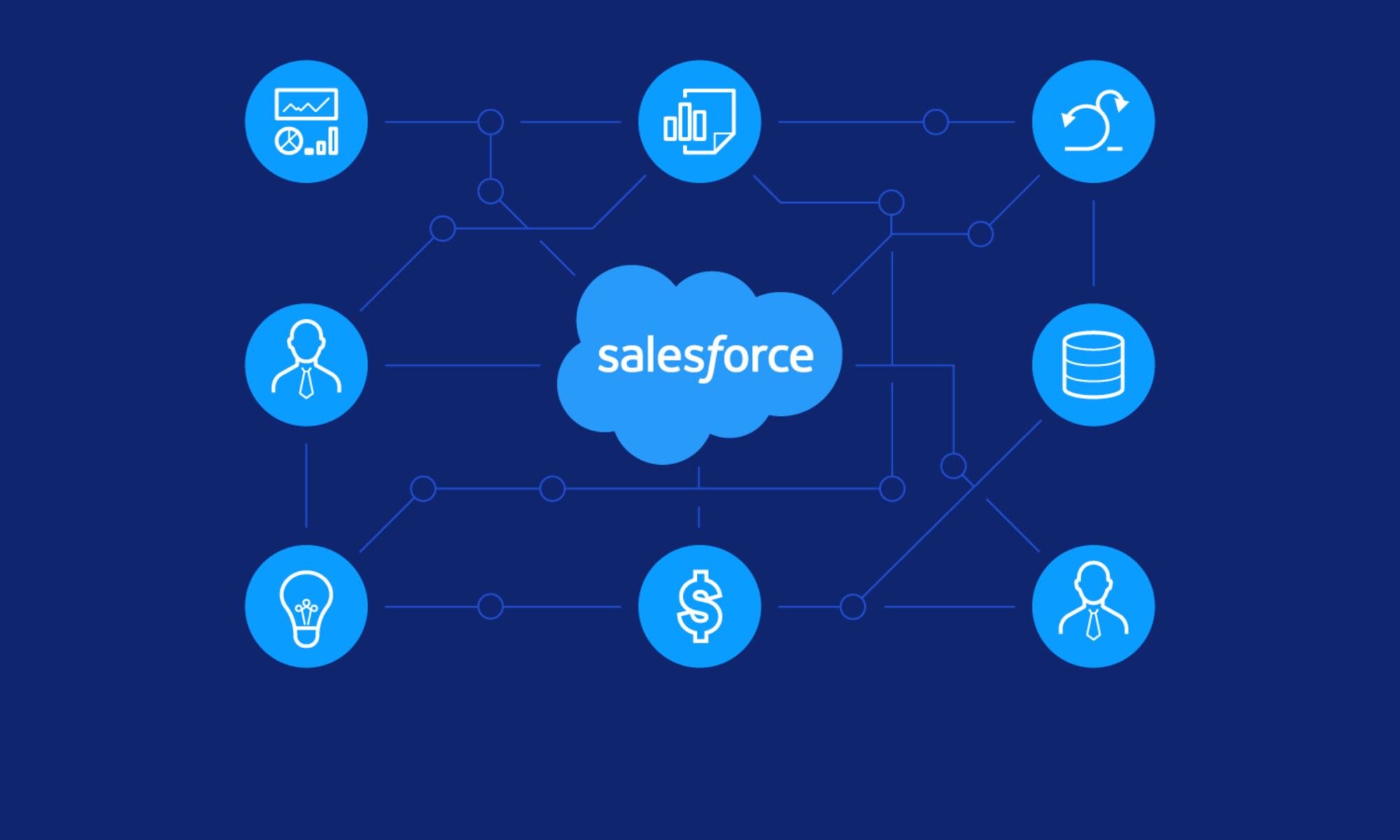Personalized customer service is regarded more today since it increases brand loyalty by making clients feel appreciated. Companies must make the most of client data and insights gathered from various sources to achieve this.
How can I obtain this data? Since traditional data architectures are difficult, labor-intensive, and unstable to create and maintain, it takes a lot of effort to obtain relevant insights and data.
Here, Salesforce Data Cloud stands out as a hero who can assist us in overcoming such obstacles. Salesforce Data Cloud: What is it? This Salesforce tool seamlessly witnesses extraordinary encounters by utilizing the full power of clients’ real-time data.
Let’s learn more about how Salesforce Data Cloud functions, as well as its advantages and features.
An introduction to Salesforce Data Cloud (Salesforce Genie)
Data Cloud enables businesses to extract value from data from any channel, system, or data stream in today’s commercial world when data multiplies every 12 hours. The biggest and most distinctive feature of Salesforce Data Cloud is that it gives Salesforce Customer 360 intelligence by automating every aspect of it.
Companies can take advantage of the Salesforce data cloud and reach their clients wherever they are by harmonizing data (combining data from many sources and offering comparable and singular data views). After that, it separates the data based on predetermined criteria, such as behavior and preferences, and then uses real-time customer profiles to instantaneously create a phenomenal level of personalization that works like magic in the environment.
The Background of Salesforce Data Cloud’s Development
Let’s emphasize Salesforce Data Cloud’s launch.
A real-time version called “Genie” made its premiere at Dreamforce 2022. The first release appeared in 2023 and was renamed “Data Cloud for Marketing”; it contained information from Customer 360 (the entire Salesforce network). It says that Data Cloud used to be known as Salesforce Genie.
The world’s top real-time CRM is made possible by the hyperscale customer data platform known as Salesforce Data Cloud.
Salesforce first established a customer data platform (CDP), designed primarily to function with Marketing Cloud, which has always been the quickly expanding, organically produced product with more than 500 customers as of today.
The CDP enables real-time processing of hyperscale data and harmonizes various data streams from various sources, channels, and systems to create a single customer graph or customer profile for marketers by compiling current transactional databases and historical data.
The Salesforce platform’s numerous components that use real-time data to personalize customer experiences are readily activated by the customer profiles. As a result, expenses are decreased, customer satisfaction is increased, and productivity is increased.
Data Cloud, which has expanded beyond marketing in recent years, strengthens the Salesforce hyperscale data platform throughout Customer 360. Salesforce has already integrated Tableau, Mulesoft, Slack, Sales, Service, Marketing, Commerce Cloud, and over thirteen more industry clouds with its Data Cloud and Lake House design.
Data Cloud, Salesforce’s new data infrastructure, unifies all systems that store data using a canonical metadata model. Users can now access the data, which is then made available for use in any Salesforce-based app.
Additionally, Data Cloud reduces the capex and opex costs associated with manually maintaining expensive data infrastructure.
How Can Current Salesforce Users Benefit from Data Cloud?
- Previously known as Salesforce Genie, Data Cloud advances dynamic data in real-time that CDP combined into a shared view in Customer 360.
- Any touchpoint’s customer data is updated more frequently and constantly over time.
- It makes consistent customer profile records visible and actionable throughout the entire Salesforce product family and every sector solution.
- Companies can create custom apps leveraging the Salesforce data cloud and meet client expectations for apps that reflect real-time user behavior.
Sales, service, marketing, commerce, Mulesoft interface, Tableau data analytics platform, and more functions are supported by Salesforce Data Cloud.
The enormous volume, real-time data, and unified consumer profile also make it possible to:
Automated processes that can change immediately in response to fresh data, AI that improves outcomes every millisecond, and exceptional analytics accuracy.
What Advantages Does Salesforce Data Cloud Offer?
To learn more about Salesforce Genie Customer Data Cloud, let’s delve further.
Enhancements to Data Management Capabilities
Salesforce Data Cloud enhances businesses’ ability to manage their data by enabling them to deduplicate, integrate, and clean up their data. As a result, organizations use less manual labor, have more efficient data workflows and procedures, and have better quality and more accurate data. Now that teams can focus on strategic goals and higher-value tasks, organisations can save time and resources.
Integrated Customer Perspectives
The best feature of the Data Cloud is its capacity to offer unified, thorough customer information, enabling businesses to benefit from the data-driven culture and make better business decisions.
Increase Conversions & Personalization
The Salesforce data cloud enables organizations to enhance their focused marketing campaigns by offering richer and well-categorized customer profiles holding their behavioral and other data. These profiles contain recommendations and messages that are specifically tailored to each consumer. As a result, the brands see increased consumer engagement conversion rates, which raise ROI.
Agility & Scalability
The Salesforce platform’s scalability and agility make it simple for enterprises to adopt and adapt to changing market demands. They develop the capacity to manage enormous data volumes in step with expanding consumer engagements. Companies may achieve optimal ROI and scale their operations without sacrificing quality.
Dynamic Decision-Making Supported by Predictive Analytics
Utilizing the Salesforce Data Cloud’s strength, organizations may get predictive analytics that they can utilize to identify possible threats and opportunities, predict trends, and support dynamic decision-making. Businesses may easily optimize inventory, foresee customer expectations, and take appropriate action in response by making the most of these data to drive maximum profit and increase ROI.
Utilise Data Cloud Features To Provide A More Personalised Experience
Strong Automation
Data Cloud can automatically develop processes thanks to automation, conversational intelligence, and Salesforce Flow’s AI capability, which improves customer experiences.
Sense-making Experiments
Utilizing the power of Salesforce Einstein, users can automatically customize experiences using unified customer profiles from Data Cloud.
Data in Real Time
Data Cloud gathers real-time data from several client touchpoints and produces a single, well-categorized view of the data that is divided into distinct customer profiles.
Dependable infrastructure
Data Cloud scales with the expanding business while maintaining the necessary security, privacy, and compliance using Hyperforce.
What Is the Salesforce Data Cloud Process?
Customers can fully utilize the Customer 360 thanks to Salesforce Data Cloud, which gives users access to real-time data from all clouds. To aggregate customer data and act on insights, they can also leverage automation and AI.
The Data Cloud’s functionality:
Connect and gather information from all touchpoints.
Salesforce initially had to focus mostly on transactional data. On the other hand, Data Cloud enables Salesforce to instantly ingest an almost limitless amount of data from any device, app, or stream. Customer 360 may use the data that is saved in this Salesforce product and is transparent and accessible to the public.
Integrate Data Streams into Customer Profile Records through Harmonisation
Salesforce consolidates all client information from all information streams (that information cloud is associated through connectors in Sync #1) into a solitary client profile to construct a bunch of information known as a Customer Graph. You will locate all of a customer’s data in their unique profiles independently, regardless of the data’s source or label.
Engage – Puts Collected Data to Work
Organizations may now look at all verifiable and current client collaboration information in a solitary profile. The order and characterization of unstructured information into a very much organized structure is made more straightforward by the lakehouse engineering utilized by the Data Cloud (a solitary information stockpiling area that works with information organization and empowers experts to utilize BI, ML, and information examination). Hence, organizations who find it hard to oversee verifiable information would perceive Salesforce items as gainful for accelerating admittance to relevant information and making it work for them.
Experience
You never again need to restrict your hunt to every client record independently since dynamic information is merged in one area, well-endlessly classified under a particular client profile. Salesforce Data Cloud presents client communications as individuals since it has underlying security and consistency. In this approach, when getting a call, the customer support personnel can respond to consumers proactively rather than pestering them with endless questions regarding their present problem.
How Does Salesforce’s Data Cloud Energise Other Products?
Sales Cloud
Salesforce Sales Cloud is strengthened by Data Cloud’s AI capabilities and automation, which hasten transaction closure and increased productivity across all channels. It gathers client information from every touchpoint and separates it into unique customer profiles.
Service Cloud
Businesses use client data from a variety of sources to create individualized experiences and increase conversions. Customers’ interactions, behavior, purchasing history, preferences, and overall experience are all provided through the data included in the profiles. In this approach, businesses can strengthen their customer connections by offering more effective, individualized, and proactive customer care to their clients.
Marketing Cloud
Organizations can benefit from this dynamic customer data after boosting customer service through the use of real-time customer data and subsequently combining Data Cloud with Salesforce Marketing Cloud. They customize both the consumer journey and their marketing tactics.
Commerce Cloud
Salesforce Commerce Cloud and Data Cloud are integrated by organizations to conduct business as needed, from the discovery stage to effective delivery. By examining the purchase histories, preferences, and data from the customers’ personalized shopping experiences, businesses can launch special promotions and offers. By doing this, businesses increase consumer engagement, boost sales, and eventually increase revenue.
App Cloud
Companies can create custom apps on the App Cloud using data-driven insights, such as customer preferences, prior purchases, and real-time data from the data cloud, to deliver the anticipated customer experience and allow every aspect of the organization to function as planned.
Tableau
Tableau already can compile client data from many sources and display it in an accessible manner on a nifty dashboard. It becomes more potent to extract more relevant data, trends, patterns, and correlations and to generate more useful insights when it is integrated with the data cloud.
Slack
Teams inside organizations can access the customer data gathered from various sources, systems, and touchpoints by integrating Slack with the data cloud. This enables all corporate departments to rapidly and accurately make informed decisions and carry out focused marketing efforts, especially the sales and marketing team. Productivity is increased as a result of the decreased need to switch between apps for data collecting and analysis.
How is data security maintained by Salesforce Data Cloud?
Salesforce Data Cloud’s main goal is to satisfy the demands of the industry for privacy and data ethics through policy automation, first-rate permission management, and many other methods.
Data Cloud was developed in collaboration with the Office of Ethical and Human Use of Technology and has always adhered to the highest standards of data ethics and privacy. To protect client data and meet global regulatory compliance requirements, the Salesforce Platform adds a layer of data policy management to Salesforce Data Cloud.
Conclusion
The Salesforce Data Cloud will appear as the ultimate helper in delivering highly individualized customer experiences across all industries thanks to the unified customer profiles embedded with real-time data. The sensations are unexpectedly impacted by the difference in milliseconds. To ensure that your business is up to date, you must achieve that.




